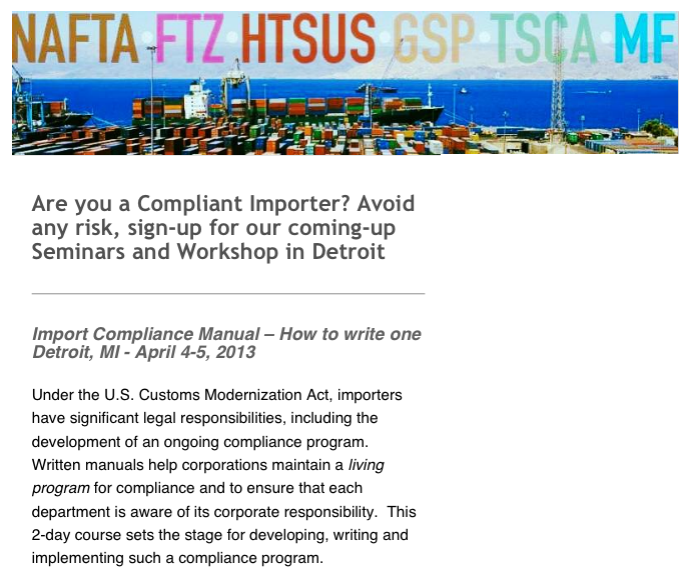US importers have to delegate responsibilities on their way to complying to the Customs Modernization Act of 2010. Non-compliance exposes responsible people to legal liabilities. On top of civil penalties in section 592, section 542 criminal penalties (up to 2 years imprisonment and a 5000 USD fine for each violation) apply to those presenting false information to customs officers.
As US importers have to delegate responsibilities, this “modernized” text could have a number of sizeable impacts such as:
- legal obligations of importers’ site at the port or airport of importation
- responsibilities delegated to departments (possibly with heads of departments as delegatees)
- obligation to have a living program for compliance documented with written manuals making it for all practical purposes a management system
- fullfiling this obligation puts emphasis on information coming from computerized systems and their reliability if this information could be presented to customs officers. Extra care in validating application software and in assuring user proficiency in using systems can be expected. In case of delegation of authority for making updates to information, access to features of computerized systems will need to be controlled accordingly.
- need for automation of internal controls to assure compliance